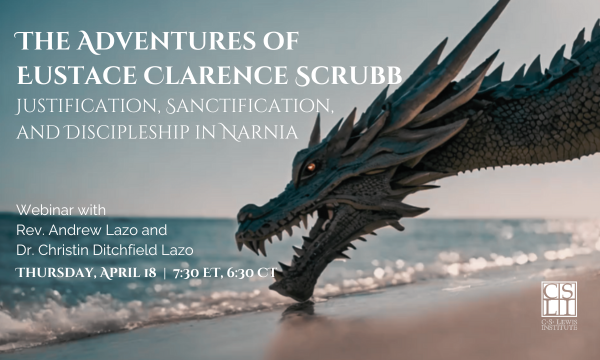Back to series



Concise Theology
A Guide to Historic Christian Beliefs
Click here to open a Print - Friendly PDF
PARACLETE: The Holy Spirit Ministers to Believers
When he, the Spirit of truth, comes, he will guide you into all truth. He will not speak on his own; he will speak only what he hears, and he will tell you what is yet to come. He will bring glory to me by taking from what is mine and making it known to you. JOHN 16:13-14
Before Jesus’ passion, he promised that the Father and he would send his disciples “another Counselor” (John 14:16, 26; 15:26; 16:7). The Counselor or Paraclete, from the Greek word parakletos (meaning one who gives support), is a helper, adviser, strengthener, encourager, ally, and advocate. Another points to the fact that Jesus was the first Paraclete and is promising a replacement who, after he is gone, will carry on the teaching and testimony that he started (John 16:6-7).
Paraclete ministry, by its very nature, is personal, relational ministry, implying the full personhood of the one who fulfills it. Though the Old Testament said much about the Spirit’s activity in Creation (e.g., Gen. 1:2; Ps. 33:6), revelation (e.g., Isa. 61:1-6; Mic. 3:8), enabling for service (e.g., Exod. 31:2-6; Judg. 6:34; 15:14-15; Isa. 11:2), and inward renewal (e.g., Ps. 51:10-12; Ezek. 36:25-27), it did not make clear that the Spirit is a distinct divine Person.
In the New Testament, however, it becomes clear that the Spirit is as truly a Person distinct from the Father as the Son is. This is apparent not only from Jesus’ promise of “another Counselor,” but also from the fact that the Spirit, among other things, speaks (Acts 1:16; 8:29; 10:19; 11:12; 13:2; 28:25), teaches (John 14:26), witnesses (John 15:26), searches (1 Cor. 2:11), determines (1 Cor. 12:11), intercedes (Rom. 8:26-27), is lied to (Acts 5:3), and can be grieved (Eph. 4:30). Only of a personal being can such things be said.
 The divinity of the Spirit appears from the declaration that lying to the Spirit is lying to God (Acts 5:3-4), and from the linking of the Spirit with the Father and the Son in benedictions (2 Cor. 13:14; Rev. 1:4-6) and in the formula of baptism (Matt. 28:19). The Spirit is called “the seven spirits” in Revelation 1:4; 3:1; 4:5; 5:6 partly, it seems, because seven is a number signifying divine perfection and partly because the Spirit ministers in his fullness.
The divinity of the Spirit appears from the declaration that lying to the Spirit is lying to God (Acts 5:3-4), and from the linking of the Spirit with the Father and the Son in benedictions (2 Cor. 13:14; Rev. 1:4-6) and in the formula of baptism (Matt. 28:19). The Spirit is called “the seven spirits” in Revelation 1:4; 3:1; 4:5; 5:6 partly, it seems, because seven is a number signifying divine perfection and partly because the Spirit ministers in his fullness.
The Spirit, then, is “he,” not “it,” and he must be obeyed, loved, and adored along with the Father and the Son.
Witnessing to Jesus Christ, glorifying him by showing his disciples who and what he is (John 16:7-15), and making them aware of what they are in him (Rom. 8:15-17; Gal. 4:6) is the Paraclete’s central ministry. The Spirit enlightens us (Eph. 1:17-18), regenerates us (John 3:5-8), leads us into holiness (Rom. 8:14; Gal. 5:16-18), transforms us (2 Cor. 3:18; Gal. 5:22-23), gives us assurance (Rom. 8:16), and gifts us for ministry (1 Cor. 12:4- 11). All God’s work in us, touching our hearts, our characters, and our conduct, is done by the Spirit, though aspects of it are sometimes ascribed to the Father and the Son, whose executive the Spirit is.
The Spirit’s full Paraclete ministry began on Pentecost morning, following Jesus’ ascension (Acts 2:1-4). John the Baptist had foretold that Jesus would baptize in the Spirit (Mark 1:8; John 1:33), according to the Old Testament promise of an outpouring of God’s Spirit in the last days (Joel 2:28-32; cf. Jer. 31:31-34), and Jesus had repeated the promise (Acts 1:4-5). The significance of Pentecost morning was twofold: it marked the opening of the final era of world history before Christ’s return, and, as compared with the Old Testament era, it marked a tremendous enhancing of the Spirit’s ministry and of the experience of being alive to God.
Jesus’ disciples were evidently Spirit-born believers prior to Pentecost, so their Spirit-baptism, which brought power to their life and ministry (Acts 1:8), was not the start of their spiritual experience. For all who have come to faith since Pentecost morning, however, beginning with the Pentecost converts themselves, the receiving of the Spirit in full new-covenant blessing has been one aspect of their conversion and new birth (Acts 2:37; Rom. 8:9; 1 Cor. 12:13). All capacities for service that subsequently appear in a Christian’s life should be seen as flowing from this initial Spirit-baptism, which vitally unites the sinner to the risen Christ.
SPIRITUAL GIFTS: The Holy Spirit Equips the Church
But to each one of us grace has been given as Christ apportioned it.... He ... gave some to be apostles, some to be prophets, some to be evangelists, and some to be pastors and teachers, to prepare God’s people for works of service, so that the body of Christ may be built up. EPHESIANS 4:7, 11-12
The New Testament depicts local churches in which some Christians hold formal and official ministerial offices (elder-overseers and deacons, Phil. 1:1), while all fulfill informal serving roles. Every-member ministry in the body of Christ is the New Testament ideal. It is clear that officers who oversee should not restrict the informal ministries but rather should facilitate them (Eph. 4:11-13), just as it is clear that those who minister informally should not be defiant or disruptive but should allow the overseers to direct their ministries in ways that are orderly and edifying (i.e., strengthening and upbuilding, 1 Cor. 14:3-5, 12, 26, 40; Heb. 13:17). The body of Christ grows to maturity in faith and love “as each part does its work” (Eph. 4:16) and fulfills its grace-given form of service (Eph. 4:7, 12).
 The word gift (literally “donation”) appears in connection with spiritual service only in Ephesians 4:7-8. Paul explains the phrase he ... gave gifts to men as referring to the ascended Christ giving his church persons called to and equipped for the ministries of apostle, prophet, evangelist, and pastor-teacher. Also, through the enabling ministry of these functionaries, Christ is bestowing a ministry role of one sort or another on every Christian. Elsewhere (Rom. 12:4-8; 1 Cor. 12-14) Paul calls these divinely given powers to serve charismata (gifts which are specific manifestations of charis or grace, God’s active and creative love, 1 Cor. 12:4), and also pneumatika (spiritual gifts as specific demonstrations of the energy of the Holy Spirit, God’s pneuma, 1 Cor. 12:1).
The word gift (literally “donation”) appears in connection with spiritual service only in Ephesians 4:7-8. Paul explains the phrase he ... gave gifts to men as referring to the ascended Christ giving his church persons called to and equipped for the ministries of apostle, prophet, evangelist, and pastor-teacher. Also, through the enabling ministry of these functionaries, Christ is bestowing a ministry role of one sort or another on every Christian. Elsewhere (Rom. 12:4-8; 1 Cor. 12-14) Paul calls these divinely given powers to serve charismata (gifts which are specific manifestations of charis or grace, God’s active and creative love, 1 Cor. 12:4), and also pneumatika (spiritual gifts as specific demonstrations of the energy of the Holy Spirit, God’s pneuma, 1 Cor. 12:1).
Amid many obscurities and debated questions regarding New Testament charismata, three certainties stand out. First, a spiritual gift is an ability in some way to express, celebrate, display, and so communicate Christ. We are told that gifts, rightly used, build up Christians and churches. But only knowledge of God in Christ builds up, so each charisma must be an ability from Christ to show and share Christ in an upbuilding way.
Second, gifts are of two types. There are gifts of speech and of loving, practical helpfulness. In Romans 12:6-8, Paul’s list of gifts alternates between the categories: items one, three, and four (prophecy, teaching, and exhorting) are gifts of speech; items two, five, six, and seven (serving, giving, leading, and showing mercy) are gifts of helpfulness. The alternation implies that no thought of superiority of one gift over another may enter in. However much gifts differ as forms of human activity, all are of equal dignity, and the only question is whether one properly uses the gift one has (1 Pet. 4:10-11).
Third, no Christian is giftless (1 Cor. 12:7; Eph. 4:7), and it is everyone’s responsibility to find, develop, and fully use whatever capacities for service God has given.

J.I. Packer
J.I. Packer, Author, (1926 – 2020), known for his best-selling book, Knowing God, as well as his work as an editor for the English Standard Version of the Bible. He was a signer on the 1978 Chicago Statement on Biblical Inerrancy, a member on the advisory board of the Council on Biblical Manhood and Womanhood, and also was involved in the ecumenical book Evangelicals and Catholics Together in 1994. His last teaching position was as the board of governors' Professor of Theology at Regent College in Vancouver, British Columbia. He was awarded the St. Cuthbert's Cross at the Provincial Assembly of ACNA on 27 June 2014 for his "unparalleled contribution to Anglican and global Christianity."

 COPYRIGHT: This publication is published by C.S. Lewis Institute; 8001 Braddock Road, Suite 301; Springfield, VA 22151. Portions of the publication may be reproduced for noncommercial, local church or ministry use without prior permission. Electronic copies of the PDF files may be duplicated and transmitted via e-mail for personal and church use. Articles may not be modified without prior written permission of the Institute. For questions, contact the Institute: 703.914.5602 or email us.
COPYRIGHT: This publication is published by C.S. Lewis Institute; 8001 Braddock Road, Suite 301; Springfield, VA 22151. Portions of the publication may be reproduced for noncommercial, local church or ministry use without prior permission. Electronic copies of the PDF files may be duplicated and transmitted via e-mail for personal and church use. Articles may not be modified without prior written permission of the Institute. For questions, contact the Institute: 703.914.5602 or email us.
-
Recent Podcasts
The Side B Stories – Dr. James Tour’s story
by Jana Harmon, James Tour on April 12, 2024From a secular Jewish home, scientific scholar and...Read More
-
Why are Christians so Bad?
by Paul Joen on April 5, 2024
-
Questions That Matter Podcast – Dai Hankey and Gospel Hope for Weary Souls
by Randy Newman, Dai Hankey on April 5, 2024
-
Recent Publications
Isn’t Morality Relative?
by Christopher L. Reese on April 1, 2024It is widely accepted in the Western world...Read More
-
Do Muslims and Christians Worship the Same God?
by Andy Bannister on March 1, 2024
-
Artificial Intelligence and Its Impacts on Humanity
by John Lennox on February 13, 2024
0
All Booked
0.00
All Booked
0.00
All Booked
21934
GLOBAL EVENT: The Adventures of Eustace Clarence Scrubb (CSLI-Atlanta & CSLI-Chicago) 7:30PM ET/ 6:30PM CT
https://www.cslewisinstitute.org/?event=global-event-the-adventures-of-eustace-clarence-scrubb-csli-atlanta-csli-chicago-730pm-et-630pm-ct&event_date=2024-04-18®=1
https://www.paypal.com/cgi-bin/webscr
2024-04-18

Next coming event
Days
Hours
Minutes
Seconds
GLOBAL EVENT: The Adventures of Eustace Clarence Scrubb (CSLI-Atlanta & CSLI-Chicago) 7:30PM ET/ 6:30PM CT
On April 18, 2024 at 7:30 pm Virtual Online EventSpeakers
Team Members

J.I. Packer
J.I. Packer, Author, (1926 – 2020), known for his best-selling book, Knowing God, as well as his work as an editor for the English Standard Version of the Bible. He was a signer on the 1978 Chicago Statement on Biblical Inerrancy, a member on the advisory board of the Council on Biblical Manhood and Womanhood, and also was involved in the ecumenical book Evangelicals and Catholics Together in 1994. His last teaching position was as the board of governors' Professor of Theology at Regent College in Vancouver, British Columbia. He was awarded the St. Cuthbert's Cross at the Provincial Assembly of ACNA on 27 June 2014 for his "unparalleled contribution to Anglican and global Christianity."





